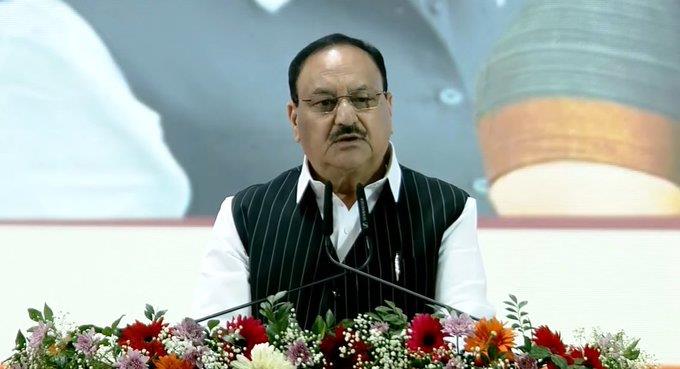How can Saudi respond to the decline of its position in US policy?
Tue 11 Oct 2016, 00:19:18
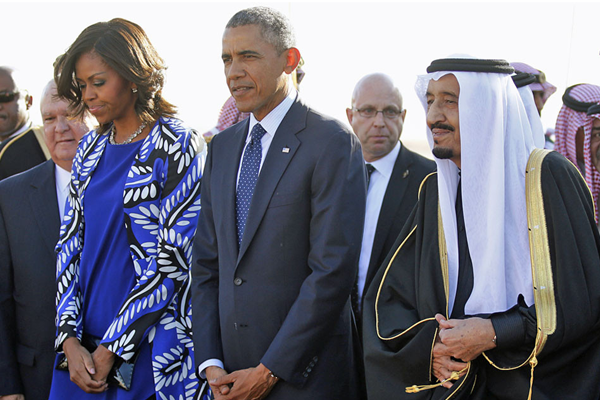
It has become clear from the developments over the past three years that Saudi Arabia’s position in the US strategy for the Middle East has greatly declined and that Washington no longer considers its relationship with Riyadh a key pillar of its policy in the region.
The passing the Justice Against Sponsors of Terrorism Act (JASTA) with such an overwhelming majority of votes from Congress is the result of the new strategy. The fact that the majority of both Republicans and Democrats voted for the law and that they overruled US President Barack Obama’s veto means that the matter is settled regarding the American policy. This is especially true if we know that foreign policy formation in Washington is based on the centrality of the president, especially regarding the Middle East.
We can point out a number of examples and evidence of the decline of Saudi Arabia’s role in the American strategy over the past few years, but the most important are:
First is the contradiction of the American and Saudi vision regarding the Arab Spring. While Washington dealt coolly with the overthrow of Hosni Mubarak – which later turned out to be a gesture from the army in order to quell the popular revolution – Riyadh was reproachful towards America for abandoning one of its main “allies”. This may have been, at least during that phase, a snowball effect that would affect other allies of Washington. However, this did not occur.
Second is the dispute regarding the Syrian crisis. While the American policy basically led to prolonging the war, and therefore causing more victims, financial losses and destruction, Riyadh was seeking real American military intervention that would lead to a transitional phase that would leave the country’s structure as is, but would omit Bashar Al-Assad. One could say that the radical difference in opinion regarding Syria began with signing the agreement on the Syrian chemical programme. This agreement strengthened Al-Assad’s regime and gave Russia a winning card in the Syrian equation, contrary to what Riyadh wished for.
Third is the gradual thaw in American-Iranian relations and Washington’s push for signing a nuclear agreement between Tehran and the P5+1 countries. This led to Iran’s return to international system, the alleviation of sanctions, and its acceptance, in one form or another, as a nuclear country. Saudi Arabia saw this agreement as a harsh blow to its policy in the region, which is based on isolating Tehran as long as it sticks to its current approach, according to the foreign minister.
If we consider this sufficient evidence of the decline of Saudi Arabia’s role in the American foreign policy, we would also find that this decline coincided with the economic “crisis” due to the fall of petrol prices. The crisis is further exacerbated by JASTA, the passing of which led to a sharp fall in the Saudi capital markets in a matter of days, and this may hold greater economic effects in coming months.
In the face of these large changes in the US’ policy towards Saudi Arabia, Riyadh’s response with tactical measures will not enable it to deal with the growing internal and external crises that are a result of the decline of the political role in the region and the internal economic decline. Instead, Saudi Arabia needs a strategic vision radically from its economic and political policies, both internally and externally.
Foreign policy and the need for a new vision
The first step that Saudi Arabia is required to take in order to regain the reins of the region and face regional rivals, particularly Iran, is to remove itself from under the cloak of US strategy. Saudi Arabia has always played significant regional roles in all the hot issues, but all of these roles remained in the orbit of the American strategy. Although there had been many differences between Riyadh and Washington over the past decades, the differences had remained within the framework of normal differences between “allies”.
If Riyadh wanted to play a strategic role befitting its size in the region, it is important for it to first realise that America’s control as the only pole in the world has ended and that any country that wants to maintain its regional role must posses an independent “unpredictable” foreign policy. Washington turned its back on a strategic ally like Riyadh because it believes that “Saudi anger” will not result in a great loss and will not have a negative effect on its policies in the region. However, it was forced to sign an agreement with Tehran after decades of differences and disputes and was forced to accept Moscow’s policy and growing role in its regional areas of influence in the Middle East because it wants to turn these two “troublesome” opponents into friends, or at least into neutral players.
Riyadh can establish itself as a regional player in the area by means of drastically changing its policy for a number of issues. The first of these issues is to change the military equation in Syria by reaching an agreement with Turkey, and the equation cant be changed unless the Saudi-Turkish alliance crosses the red lines imposed by the US,
which has continuously refused to allow anti-aircraft missiles and qualitative arms to be given to the Syrian opposition. This has allowed the Syrian regime to remain superior, as it is backed by Russia, Iran and their affiliated militias. Making any political progress in Syria and granting Saudi Arabia a strategic position in it can only be achieved by overruling the American veto of changing the military balance in favour of the opposition.
which has continuously refused to allow anti-aircraft missiles and qualitative arms to be given to the Syrian opposition. This has allowed the Syrian regime to remain superior, as it is backed by Russia, Iran and their affiliated militias. Making any political progress in Syria and granting Saudi Arabia a strategic position in it can only be achieved by overruling the American veto of changing the military balance in favour of the opposition.
The second regional issue that could strongly restore Saudi Arabia to the regional equation is Iraq. However, this cannot be achieved by being open to Iraq and all of its various factions, especially the Sunni Arabs, in order to fill the void that Saudi Arabia and other Arab countries left for Iran in the eastern flank of the Arab nation. In order for Saudi Arabia to regain control of the initiative in Iraq, it must come out of its factional polarisation and try to support the Arab parties in the very complicated Iraqi political equation.
The third issue is changing Saudi Arabia’s strategy in Yemen by combining political and military work and not limiting their work to the war. Saudi Arabia gained Arab and Yemeni popular sympathy when it announced it was launching “Operation Decisive Storm” to restore legitimacy in Yemen, but the length of the war led to losing some of the sympathy due to the tragedies left behind by the war and the number of civilian victims. They also lost sympathy because Saudi Arabia did not politically invest the results of the war, and therefore, regaining a positive image of Riyadh in Yemen requires it to end the suffering caused by the war for the civilians, start a political process that will complete, and to ally with local players, beginning with the Yemeni Islah party, which is the main rival of the Houthis and former President Ali Abdullah Saleh, as well as allying with the tribal leaders who have historic relations with Saudi Arabia.
Given the importance of the Arab-Israeli conflict in creating policies in the Middle East, Saudi Arabia will not be able to play a critical role in the region without delving into the Palestinian issue and being open to all the players in the national Palestinian project, including Hamas and other resistance movements. It must also remove itself from its static state in the form of remaining content with proposing the Arab Initiative, which has been rejected by Israel numerous times.
Fall of oil prices, JASTA and the economy
Some experts believe that Saudi Arabia has started to respond to JASTA by making an agreement with China to use the Saudi Riyal and Yen in their business exchanges. They also believe that this causes losses for America given the magnitude of trade between the two countries, which reached over $49 billion in 2015. In the past, the Saudi Foreign Minister Adel Al-Jubeir threatened to sell assets owned by his country in the United States, worth over $612 billion, according to the US Department of the Treasury’s latest annual report.
Regardless of the gravity of Saudi Arabia’s threats to sell its assets, a number of experts downplayed the significance of such a move and its impact on the American economy. In the same context, the agreement with China to not use the dollar is an isolated measure and may be a direct response to JASTA.
However, reactions cannot establish a strong economy that can grant Saudi Arabia a strategic position in the region. Instead, this can be achieved by studying all the options that reinforce the formation of a productive economy that is not limited to oil, working on gradually eliminating the complete dependence on the American market to invest money into the sovereign funds and to buy assets and adopting a policy of dealing with various currencies in the oil business.
On the level of the domestic economic policy, the decline of oil prices and the political and economic conditions in Saudi Arabia over the past few years all indicate that the economy cannot continue to function in the manner it was in the kingdom and that it is time for austere, but rational budgets, a productive economy, and human development that ends the citizens’ dependence on the state.
Internal reform
In order for any policy that Saudi Arabia has adopted now to respond to its economic and political crises to succeed, it must be a “different” and unconventional policy. This means that it must include “painful” measures that may cost the Saudi citizen different prices that affect the relative “luxury” in which they live in given the economy based on exporting oil.
If the economy had been successful for many decades in guaranteeing political stability and having a large number of citizens accept the absence of popular representation in the government, the austere measures and any “painful” political or economic measures will lead to causing an imbalance in the equation based on “no taxes… no representation”. Therefore, gradual political reform and expanding the base of popular participation in government by means of establishing elected local and parliamentary committees has become necessary to enable Saudi Arabia to set up a strategic role and position in the region.
No Comments For This Post, Be first to write a Comment.
Most viewed from International
Most viewed from World
AIMIM News
Latest Urdu News
Most Viewed
May 26, 2020
Do you think Canada-India relations will improve under New PM Mark Carney?
Latest Videos View All
Like Us
Home
About Us
Advertise With Us
All Polls
Epaper Archives
Privacy Policy
Contact Us
Download Etemaad App
© 2025 Etemaad Daily News, All Rights Reserved.

.jpg)
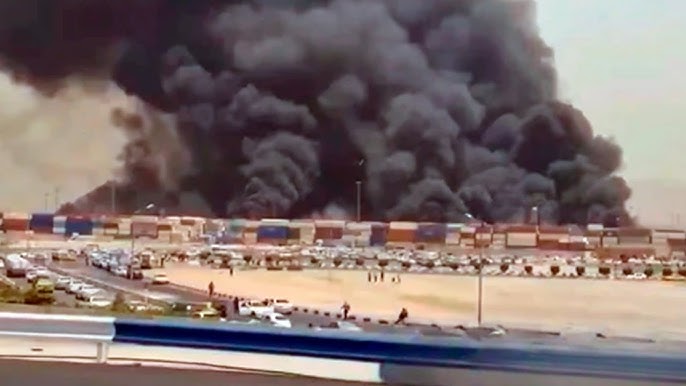

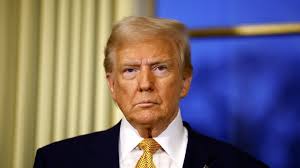

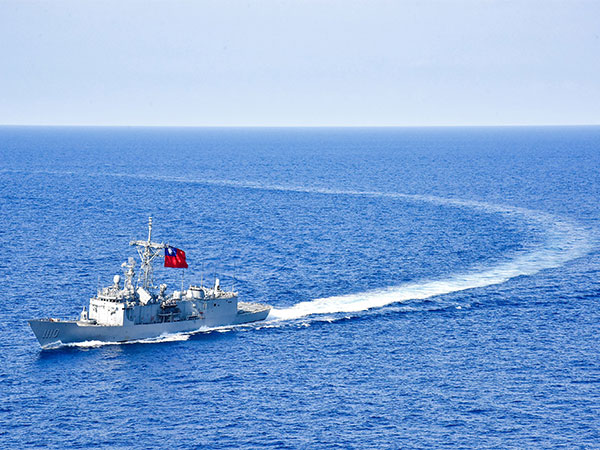



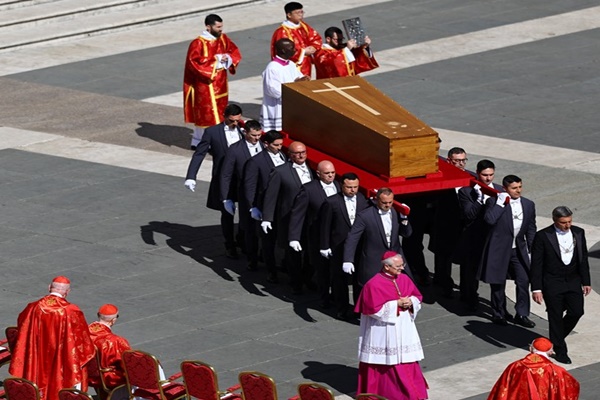
.jpg)
.jpg)
.jpg)
.jpg)
.jpg)
.jpg)
.jpg)
.jpg)
.jpg)




